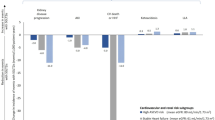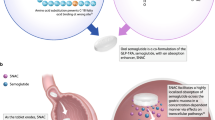Abstract
Patients with uncontrolled hypertension on adequate combination and doses of blood pressure-lowering drugs present a diagnostic and therapeutic dilemma. Currently, hypertension guidelines point out uncommon causes of hypertension (either organic such as secondary hypertension or drugs/substances interfering with blood pressure-lowering drugs or causing hypertension) as a cause of hypertension resistance. Non-adherence to drugs, however, is equally, if not more, a cause of hypertension resistance. True resistance to pharmacotherapy is relatively uncommon, as in the majority of patients with non-adherence and/or secondary hypertension, the diagnosis of the problem may potentially lead to better control. Conventionally applied indirect methods to detect non-adherence are inadequate to uncover all cases of non-adherence, especially intentional non-adherence. Rigorous methods to detect non-adherence including direct observed therapy and measuring drug/metabolite levels in body fluids should be considered simultaneously if not before costly and invasive investigations for patients with difficult to control hypertension. However, data on the effectiveness of whether diagnosing non-adherence ultimately controls hypertension is still awaited.


Similar content being viewed by others
References
Papers of particular interest, published recently, have been highlighted as: • Of importance
Reiser SJ. What modern physicians can learn from Hippocrates. Cancer. 2003;98(8):1555–8.
Huth EJ, Murray T, editors. Medicine in quotations: views of health and disease through the ages. 2nd ed. Philadelphia: American College of Physicians; 2006.
Osterberg L, Blaschke T. Adherence to medication. N Engl J Med. 2005;353(5):487–97.
Mirriam-Websters. Dictionary. 2015; http://www.merriam-webster.com/dictionary/adherence. Accessed 04/15, 2015.
Irvin MR, Shimbo D, Mann DM, et al. Prevalence and correlates of low medication adherence in apparent treatment-resistant hypertension. J Clin Hypertens (Greenwich). 2012;14(10):694–700.
Dasgupta K, Quinn RR, Zarnke KB, et al. The 2014 Canadian Hypertension Education Program recommendations for blood pressure measurement, diagnosis, assessment of risk, prevention, and treatment of hypertension. Can J Cardiol. 2014;30(5):485–501.
Godwin M, Williamson T, Khan S, et al. Prevalence and management of hypertension in primary care practices with electronic medical records: a report from the Canadian Primary Care Sentinel Surveillance Network. CMAJ Open. 2015;3(1):E76–82.
Blaschke TF, Osterberg L, Vrijens B, Urquhart J. Adherence to medications: insights arising from studies on the unreliable link between prescribed and actual drug dosing histories. Annu Rev Pharmacol Toxicol. 2012;52:275–301.
Mukhtar O, Weinman J, Jackson SH. Intentional non-adherence to medications by older adults. Drugs Aging. 2014;31(3):149–57.
Gadkari AS, McHorney CA. Unintentional non-adherence to chronic prescription medications: how unintentional is it really? BMC Health Serv Res. 2012;12:98.
Brunenberg DE, Wetzels GE, Nelemans PJ, et al. Cost effectiveness of an adherence-improving programme in hypertensive patients. Pharmacoeconomics. 2007;25(3):239–51.
Hayen A, Bell K, Glasziou P, Neal B, Irwig L. Monitoring adherence to medication by measuring change in blood pressure. Hypertension. 2010;56(4):612–6.
Shalansky SJ, Levy AR, Ignaszewski AP. Self-reported Morisky score for identifying nonadherence with cardiovascular medications. Ann Pharmacother. 2004;38(9):1363–8.
Lee JY, Kusek JW, Greene PG, et al. Assessing medication adherence by pill count and electronic monitoring in the African American Study of Kidney Disease and Hypertension (AASK) Pilot Study. Am J Hypertens. 1996;9(8):719–25.
van Onzenoort HA, Verberk WJ, Kessels AG, et al. Assessing medication adherence simultaneously by electronic monitoring and pill count in patients with mild-to-moderate hypertension. Am J Hypertens. 2010;23(2):149–54.
Steiner JF, Prochazka AV. The assessment of refill compliance using pharmacy records: methods, validity, and applications. J Clin Epidemiol. 1997;50(1):105–16.
Garg JP, Elliott WJ, Folker A, Izhar M, Black HR. Resistant hypertension revisited: a comparison of two university-based cohorts. Am J Hypertens. 2005;18(5 Pt 1):619–26.
Yakovlevitch M, Black HR. Resistant hypertension in a tertiary care clinic. Arch Intern Med. 1991;151(9):1786–92.
de Souza WA, Sabha M, de Faveri FF, Bergsten-Mendes G, Yugar-Toledo JC, Moreno H. Intensive monitoring of adherence to treatment helps to identify “true” resistant hypertension. J Clin Hypertens (Greenwich). 2009;11(4):183–91.
Ceral J, Habrdova V, Vorisek V, Bima M, Pelouch R, Solar M. Difficult-to-control arterial hypertension or uncooperative patients? The assessment of serum antihypertensive drug levels to differentiate non-responsiveness from non-adherence to recommended therapy. Hypertens Res. 2011;34(1):87–90.
Jung O, Gechter JL, Wunder C, et al. Resistant hypertension? Assessment of adherence by toxicological urine analysis. J Hypertens. 2013;31(4):766–74. This prospective study gives a fascinating breakdown of the spectrum of clinical hypertension, with data about each step of screening and monitoring for adherence showing that very few patients have true resistant hypertension.
Bayer R, Wilkinson D. Directly observed therapy for tuberculosis: history of an idea. Lancet. 1995;345(8964):1545–8.
Hotchkiss RL. Directly observed treatment of tuberculosis. N Engl J Med. 1993;329(2):135.
Small PM, Hopewell PC, Singh SP, et al. The epidemiology of tuberculosis in San Francisco. A population-based study using conventional and molecular methods. N Engl J Med. 1994;330(24):1703–9.
Ruzicka M, McCormick B, Leenen FH, Froeschl M, Hiremath S. Adherence to blood pressure-lowering drugs and resistant hypertension: should trial of direct observation therapy be part of preassessment for renal denervation? Can J Cardiol. 2013;29(12):1741 e1741–1743. A single case report, demonstrating a beguiling scenario of intentional non-adherence that was unmasked by direct observed therapy.
Fadl Elmula FE, Hoffmann P, Fossum E, et al. Renal sympathetic denervation in patients with treatment-resistant hypertension after witnessed intake of medication before qualifying ambulatory blood pressure. Hypertension. 2013;62(3):526–32. This prospective study conducted during the height of the renal denervation exuberance, demonstrated that renal denervation had little effect on blood pressure after excluding the patients who did not have true resistant hypertension with direct observed therapy.
Burnier M, Wuerzner G, Struijker-Boudier H, Urquhart J. Measuring, analyzing, and managing drug adherence in resistant hypertension. Hypertension. 2013;62(2):218–25.
Mancia G, Fagard R, Narkiewicz K, et al. 2013 ESH/ESC Guidelines for the management of arterial hypertension: the Task Force for the management of arterial hypertension of the European Society of Hypertension (ESH) and of the European Society of Cardiology (ESC). J Hypertens. 2013;31(7):1281–357.
Calhoun DA, Jones D, Textor S, et al. Resistant hypertension: diagnosis, evaluation, and treatment: a scientific statement from the American Heart Association Professional Education Committee of the Council for High Blood Pressure Research. Circulation. 2008;117(25):e510–26.
Doumas M, Papademetriou V, Douma S, et al. Benefits from treatment and control of patients with resistant hypertension. Int J Hypertens. 2010;2011:318549.
Daugherty SL, Powers JD, Magid DJ, et al. Incidence and prognosis of resistant hypertension in hypertensive patients. Circulation. 2012;125(13):1635–42.
Cushman WC, Ford CE, Cutler JA, et al. Success and predictors of blood pressure control in diverse North American settings: the antihypertensive and lipid-lowering treatment to prevent heart attack trial (ALLHAT). J Clin Hypertens (Greenwich). 2002;4(6):393–404.
Persell SD. Prevalence of resistant hypertension in the United States, 2003-2008. Hypertension. 2011;57(6):1076–80.
Egan BM, Zhao Y, Axon RN, Brzezinski WA, Ferdinand KC. Uncontrolled and apparent treatment resistant hypertension in the United States, 1988 to 2008. Circulation. 2011;124(9):1046–58.
Daugherty SL, Powers JD, Magid DJ, et al. The association between medication adherence and treatment intensification with blood pressure control in resistant hypertension. Hypertension. 2012;60(2):303–9.
Vrijens B, Vincze G, Kristanto P, Urquhart J, Burnier M. Adherence to prescribed antihypertensive drug treatments: longitudinal study of electronically compiled dosing histories. BMJ. 2008;336(7653):1114–7.
Burnier M, Schneider MP, Chiolero A, Stubi CL, Brunner HR. Electronic compliance monitoring in resistant hypertension: the basis for rational therapeutic decisions. J Hypertens. 2001;19(2):335–41.
Brinker S, Pandey A, Ayers C, et al. Therapeutic drug monitoring facilitates blood pressure control in resistant hypertension. J Am Coll Cardiol. 2014;63(8):834–5.
Owen RJ, Hiremath S, Myers A, Fraser-Hill M, Barrett BJ. Canadian Association of Radiologists consensus guidelines for the prevention of contrast-induced nephropathy: update 2012. Can Assoc Radiol J. 2014;65(2):96–105.
Bavry AA, Kapadia SR, Bhatt DL, Kumbhani DJ. Renal artery revascularization: updated meta-analysis with the CORAL trial. JAMA Intern Med. 2014;174(11):1849–51.
Ruzicka M, Leenen FH. Monotherapy versus combination therapy as first line treatment of uncomplicated arterial hypertension. Drugs. 2001;61(7):943–54.
Leiva A, Aguilo A, Fajo-Pascual M, et al. Efficacy of a brief multifactorial adherence-based intervention in reducing blood pressure: a randomized clinical trial. Patient Prefer Adherence. 2014;8:1683–90.
Haynes RB, Ackloo E, Sahota N, McDonald HP, Yao X. Interventions for enhancing medication adherence. Cochrane Database Syst Rev. 2008;2:CD000011.
Laba TL, Brien JA, Jan S. Understanding rational non-adherence to medications. A discrete choice experiment in a community sample in Australia. BMC Fam Pract. 2012;13:61.
Rosenbaum L. Beyond belief—how people feel about taking medications for heart disease. N Engl J Med. 2015;372(2):183–7. A narrative essay that explores some of the reasons why patients may consciously choose not to take medications.
Dusing R, Handrock R, Klebs S, Tousset E, Vrijens B. Impact of supportive measures on drug adherence in patients with essential hypertension treated with valsartan: the randomized, open-label, parallel group study VALIDATE. J Hypertens. 2009;27(4):894–901.
Acknowledgments
The authors would like to acknowledge research salary support from the Department of Medicine, University of Ottawa.
Compliance with Ethics Guidelines
ᅟ
Conflict of Interest
Drs Ruzicka and Hiremath declare that they have no conflicts of interest.
Human and Animal Rights and Informed Consent
This article does not contain any studies with human or animal subjects performed by any of the authors.
Author information
Authors and Affiliations
Corresponding author
Additional information
This article is part of the Topical Collection on Resistant Hypertension
Rights and permissions
About this article
Cite this article
Ruzicka, M., Hiremath, S. Can Drugs Work in Patients Who Do Not Take Them? The Problem of Non-adherence in Resistant Hypertension. Curr Hypertens Rep 17, 69 (2015). https://doi.org/10.1007/s11906-015-0579-4
Published:
DOI: https://doi.org/10.1007/s11906-015-0579-4




